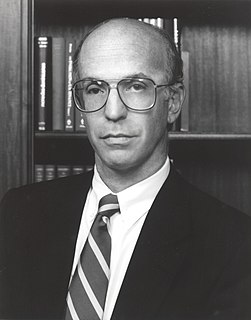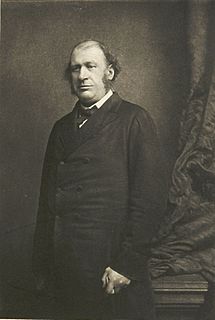A Quote by Alan Blinder
And the maestro surely wielded the chairman's baton with extraordinary skill. His stellar record suggests that the only right answer to the age-old question of whether it is better to be lucky or good may be: both.
Related Quotes
I listen to the summer symphony outside my window. Truthfully, it's not a symphony at all. There's no tune, no melody, only the same notes over and over. Chirps and tweets and trills and burples. It's as if the insect orchestra is forever tuning its instruments, forever waiting for the maestro to tap his baton and bring them to order. I, for one, hope the maestro never comes. I love the music mess of it.
Unfortunately, skill in evaluating the business prospects of a firm is not sufficient for successful stock trading, where the key question is whether the information about the firm is already incorporated in the price of the stock. Traders apparently lackthe skill to answer this crucial question, but they appear to be ignorant of their ignorance.
The issue is not whether there are horrible cases where the penalty seems "right". The real question is whether we will ever design a capital system that reaches only the "right" cases, without dragging in the wrong cases, cases of innocence or cases where death is not proportionate punishment. Slowly, even reluctantly, I have realized the answer to that question is no- we will never get it right.
To me this question whether liberty is a good or a bad thing appears as irrational as the question whether fire is a good or a bad thing. It is both good and bad according to time, place, and circumstance, and a complete answer to the question, In what cases is liberty good and in what cases is it bad? would involve not merely a universal history of mankind, but a complete solution of the problems which such a history would offer.
To be a scientist you have to be willing to live with uncertainty for a long time. Research scientists begin with a question and they take a decade or two to find an answer. Then the answer they get may not even answer the question they thought it would. You have to have a supple enough mind to be open to the possibility that the answer sometimes precedes the question itself.
Can man be so age-stricken that no faintest sunshine of his youth may re visit him once a year? It is impossible. The moss on our time-worn mansion brightens into beauty; and the good old pastor, who once dwelt here, renewed his prime and regained his boyhood in the genial breeze of his ninetieth spring. Alas for the worn and heavy soul, if, whether in youth or age, it has outlived its privilege of springtime sprightliness!
There is here, what is not in the old country. In spite of hard, unfamiliar things, there is here - hope. In the old country, a man can be no more than his father, providing he works hard. If his father was a carpenter, he may be a carpenter. He many not be a teacher or a priest. He may rise - but only to his father's state. In the old country, a man is given to the past. Here he belongs to the future. In this land, he may be what he will, if he has the good heart and the way of working honestly at the right things.
Albert Camus wrote that the only serious question is whether to kill yourself or not. Tom Robbins wrote that the only serious question is whether time has a beginning and an end. Camus clearly got up on the wrong side of bed, and Robbins must have forgotten to set the alarm. There is only one serious question. And that is: Who knows how to make love stay? Answer me that and I will tell you whether or not to kill yourself.
Science tries to answer the question: "How?" How do cells act in the body? How do you design an airplane that will fly faster thansound? How is a molecule of insulin constructed? Religion, by contrast, tries to answer the question: "Why?" Why was man created? Why ought I to tell the truth? Why must there be sorrow or pain or death? Science attempts to analyze how things and people and animals behave; it has no concern whether this behavior is good or bad, is purposeful or not. But religion is precisely the quest for such answers: whether an act is right or wrong, good or bad, and why.





































